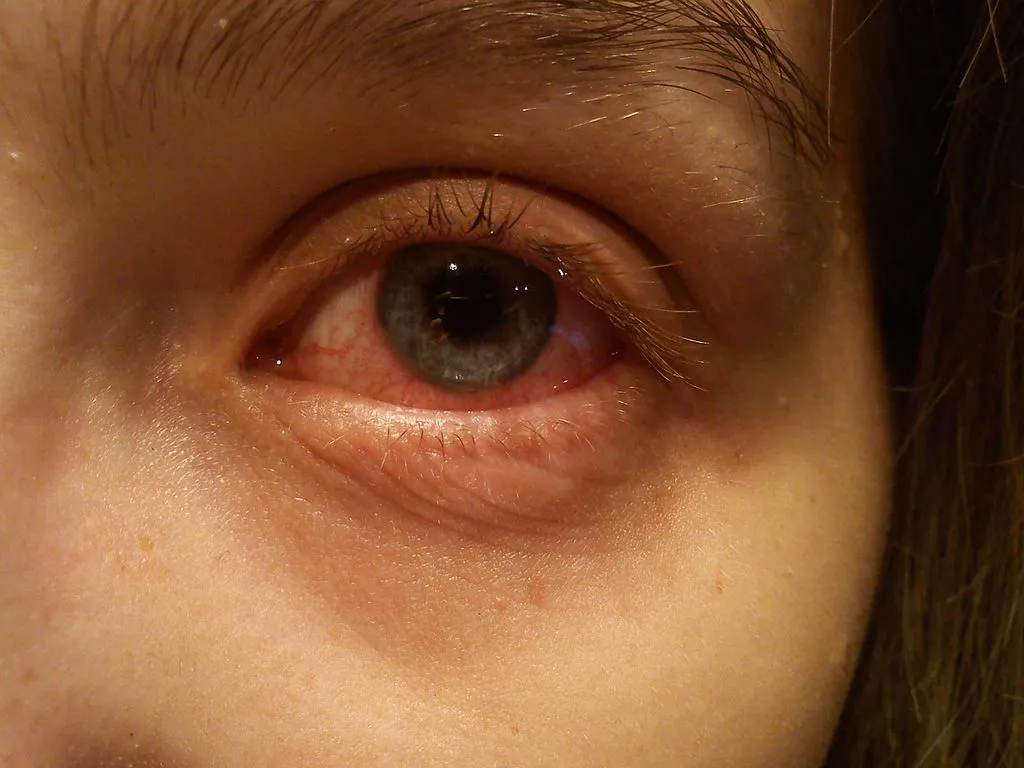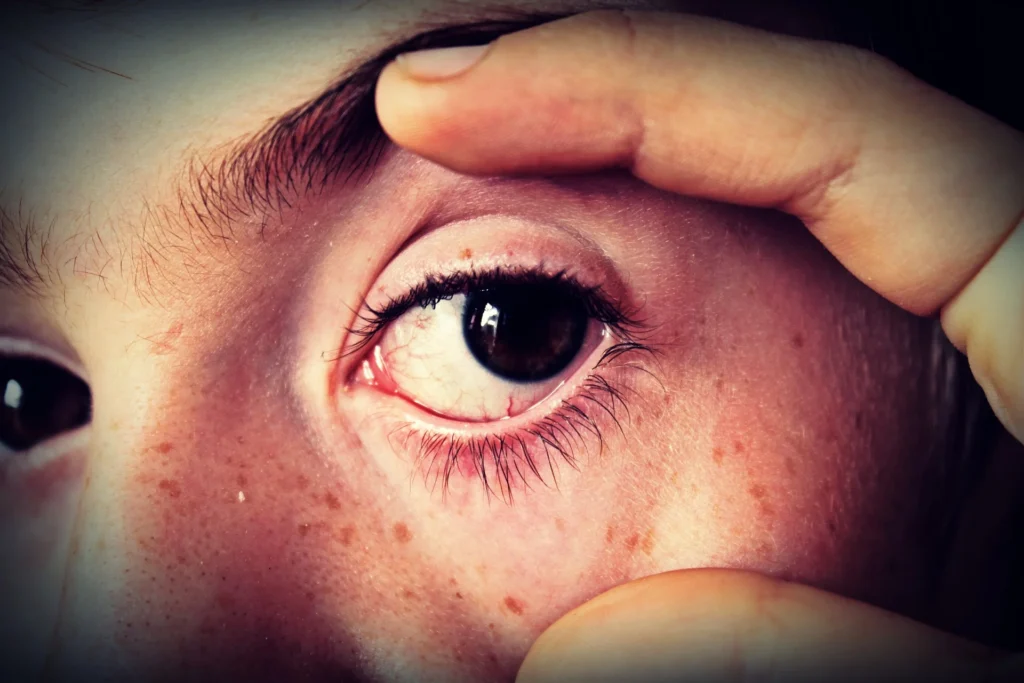Pink eye, medically known as conjunctivitis, is an inflammation or infection of the conjunctiva, a thin, transparent layer of tissue covering the white part of the eye and lining the inner eyelid. It is a common eye condition that can affect people of all ages, but it is more common in children. Pink eye can be caused by a variety of factors, including viruses, bacteria, allergens, and irritants. In this article, we will discuss the different types of conjunctivitis, their symptoms, and the available treatments.

Types of Pink Eye
There are four main types of conjunctivitis: viral, bacterial, allergic, and chemical.
1.Viral Pink Eye
Viral pink eye is the most common type of conjunctivitis and is caused by a virus. It can be highly contagious and is often associated with colds or respiratory infections. Symptoms of viral conjunctivitis include redness, tearing, itching, and sensitivity to light.
2.Bacterial Pink Eye
Bacterial conjunctivitis is caused by bacteria and is often characterized by a thick, yellow or greenish discharge from the eye. It can be highly contagious and can cause more severe symptoms than viral conjunctivitis
3.Allergic Pink Eye
Allergic conjunctivitis is caused by an allergic reaction to an allergen, such as pollen or animal dander. It is not contagious and is often associated with other allergy symptoms, such as sneezing and runny nose.
4.Chemical Pink Eye
Chemical conjunctivitis is caused by exposure to irritants, such as smoke, fumes, or chemicals. It is not contagious and can be caused by a variety of substances, including cleaning products, cosmetics, and chlorine.
You may also like.A Path To Natural Health How to Get Thick Black Hair Naturally: 11 Tips and Tricks for Healthy and Strong Hair
Symptoms of Pink Eye
The symptoms of conjunctivitis can vary depending on the type of pink eye you have.
Common Symptoms
• Redness in the white of the eye or inner eyelid
• Tearing
• Itching or burning sensation
• Sensitivity to light
• Blurred vision
• Crusting of eyelids or lashes.
Less Common Symptoms
• Pain
• Swelling of the eyelids or conjunctiva
• Discharge from the eye
• Watery eyes
• Swollen lymph nodes in front of the ears.
Symptoms in Children
Children may experience the same symptoms as adults, but they may also rub their eyes more frequently and complain of discomfort or itching. Children with conjunctivitis may also be more irritable or cranky than usual.
Diagnosis of Pink Eye
To diagnose pink eye, your doctor will ask about your medical history and perform a physical exam of your eyes. In some cases, your doctor may order laboratory tests, such as a culture or smear of your eye discharge, to determine the cause of your conjunctivitis
 Treatment of Pink Eye
Treatment of Pink Eye
The treatment for conjunctivitis depends on the underlying cause. In most cases, pink eye will clear up on its own within a week or two. However, there are several things you can do to relieve the symptoms and speed up the healing process.
Home Remedies
• Apply a warm compress to your eye several times a day to help reduce inflammation and relieve itching.
• Use artificial tears or eye drops to keep your eye lubricated and moist.
• Avoid wearing contact lenses until your symptoms have resolved.
• Practice good hygiene, such as washing your hands frequently and avoiding rubbing your eyes.
Medications
If your conjunctivitis is caused by bacteria, your doctor may prescribe antibiotic eye drops or ointment to help clear the infection. If your conjunctivitis is caused by allergies, your doctor may recommend antihistamine eye drops or allergy medications to help relieve your symptoms. In some cases, corticosteroid eye drops may be prescribed to reduce inflammation and swelling.
Prevention of Pink Eye
To prevent conjunctivitis, it’s important to practice good hygiene and take safety measures to avoid exposure to irritants and allergens. Here are some tips:
• Wash your hands frequently, especially if you’ve been around someone with conjunctivitis or have touched your own eyes.
• Avoid sharing personal items, such as towels, washcloths, and makeup.
• Clean and disinfect surfaces and objects that may be contaminated with bacteria or viruses.
• Wear protective eyewear when working with chemicals or other irritants.
• Avoid touching your eyes with your hands.
Conclusion
Pink eye is a common eye condition that can be caused by a variety of factors. Knowing the different types of conjunctivitis and their symptoms can help you identify the cause and seek appropriate treatment. While most cases of conjunctivitis will resolve on their own, it’s important to take steps to prevent the spread of infection and relieve your symptoms.
Disclaimer: The advice and suggestions mentioned in the article are for general information purpose only and it should not be taken as professional medical advice. Always consult your doctor if you have any questions or concerns
What Should I Eat to Lose 10 Pounds in a Month? A Comprehensive Guide to Healthy Eating for Weight Loss
FAQs
Can pink eye be spread through swimming pools?
Yes, conjunctivitis can be spread through swimming pools. If someone with conjunctivitis swims in a pool and their eye discharge gets into the water, others who swim in the same pool can become infected.
Can I wear contact lenses with pink eye?
It's not recommended to wear contact lenses if you have conjunctivitis. Contact lenses can worsen your symptoms and increase the risk of spreading the infection.
How long does pink eye last?
The duration of pink eye depends on the underlying cause. Viral conjunctivitis usually lasts for 1-2 weeks, while bacterial pink eye can be treated with antibiotics and usually resolves within a few days. Allergic pink eye may persist as long as the allergen is present.
Can I go to work or school if I have pink eye?
It's best to stay home from work or school if you have pink eye. Pink eye is highly contagious and can easily spread to others.
How can I prevent pink eye from recurring?
To prevent conjunctivitis from recurring, it's important to practice good hygiene and avoid sharing personal items, such as towels and washcloths. If you have allergic conjunctivitis, avoiding the allergen can prevent recurrence. If you have chronic conjunctivitis, your doctor may recommend long-term treatment with medications or other therapies.

 Treatment of Pink Eye
Treatment of Pink Eye
